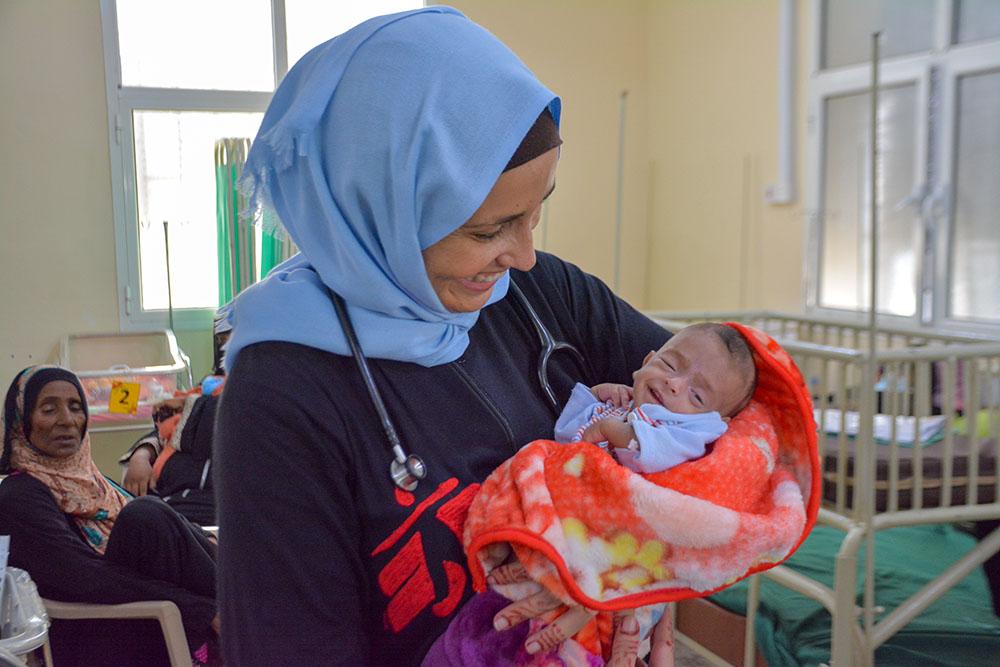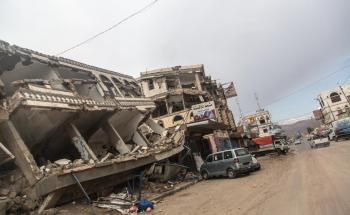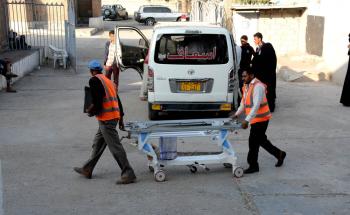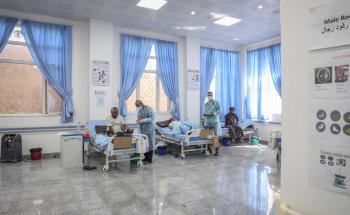In Hodeidah, Yemen, the war means people face huge barriers to accessing healthcare. Paediatrician Mónica Costeira tells the story of one family and the challenges they had to overcome...
"On the rooftop of the Doctors Without Borders (MSF) house in the city of Al-Qanawis, in the Hodeidah governorate of northwestern Yemen, I look at the stars.
We all look up at the same sky, I think, but life is so different depending on your vantage point. I am in a beautiful country with a very rich history. Now, it is being destroyed by war.
You might think that injuries in war are about trauma: people are victims of bombs, gunshots or shelling. What many people don’t realise is that war also brings endless invisible misery, as well as physical harm. Al-Qanawis and the surrounding region is an examples of it.
They do not normally hear the sound of gunshots, airstrikes or shelling, but even so, they feel they are at war every day.Mónica Costeira, healthcare. Paediatrician.
The everyday war
Every week, we admit dozens of newborn babies to the mother and child hospital supported by MSF in Al-Qanawis. Fighting for their lives, these children are victims of what this war has done to their country.
The Hodeidah governorate has been one of the most active conflict zones in Yemen in the six years since the war began, but many of our patients are coming from remote villages located in desert-like regions, not from the frontline. They do not normally hear the sound of gunshots, airstrikes or shelling, but even so, they feel they are at war every day.
As I speak to our patients, I come to understand that they lack access to healthcare, food, water, safe shelter and education. Many of them die due to diseases that are perfectly treatable and preventable if only they had access to a hospital with the necessary staff and medication. As a result, the most severely affected people are the most vulnerable; children, pregnant women, elderly people, and people with chronic diseases. The first thing that war does to a country is burdened its health system. A country like Yemen, with a health infrastructure that was already weak, has buckled under this extra weight.
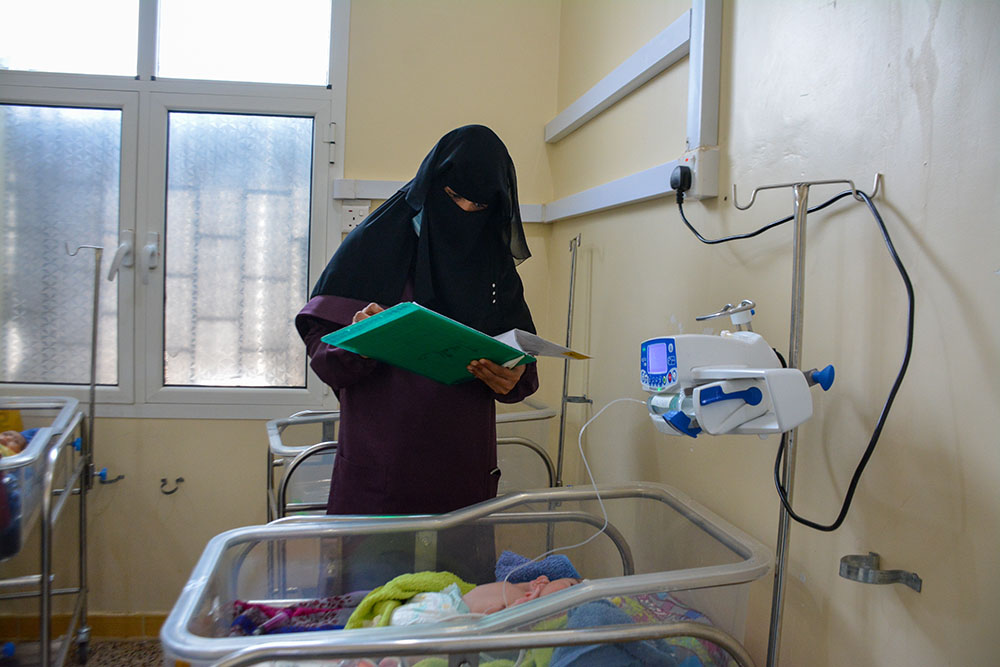
People don't give up
Wherever people live, they try to achieve the best life for their families. People don’t give up. In Yemen too, you find parents selling everything they have for a chance to send some of their children to another country in the hope that they will be able to lead a normal life, access healthcare, get an education and find a job.
"Fatima gathered the energy and resources to reach the nearest free health facility..." But in Yemen, something as simple as going to the hospital when you are sick can be an odyssey. I met so many parents who faced huge challenges just to bring their sick child to the hospital, like Latifa’s mother and father. Latifa had to be a fighter right from the first day of her life.
Latifa
Her mother and her family live in a small, isolated village, without access to health care. When the war started many of the health centres in their area collapsed, either destroyed or simply closed owing to a lack of medication, equipment, and staff.
When she became pregnant, Latifa's mother, Fatima, had no access to health facilities. She became sick, but didn’t have the time or the money to get transportation to seek healthcare. The contractions started suddenly one day, but it was still too early. Fatima feared for her baby. She wanted to go to a health facility because she knew it was too early and her baby would be at risk. But there was no time, and she delivered at home. The baby was born very small and with breathing difficulties.
She was far from the hospital and her baby did not survive. She was still suffering from the loss when she realised that the delivery had not finished! She was carrying twins, but hadn’t known since she'd had no antenatal checks.
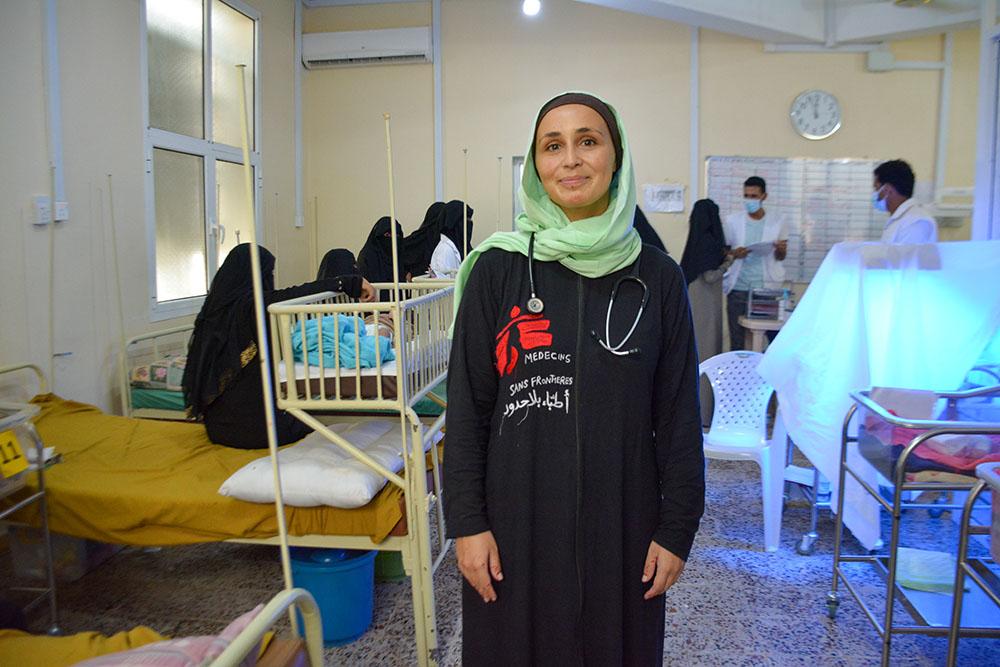
Dedication and love
Fatima gathered the energy and resources to reach the nearest free health facility providing maternal and childhood care, the Al Qanawis MSF hospital, still hours away from her home. Fortunately, she managed to arrive at our hospital in time, and she delivered her second baby, Latifa.
I hope she brings hope to her family, her community, and to her war-torn country...
Latifa was admitted to us for two months with low birth weight. She soon became a source of love and affection for the whole team. When the day finally came for her to be discharged I felt so proud of her and of our work, of the team’s dedication and love. I hope she brings hope to her family, her community, and to her war-torn country. I hope that Latifa sweetens the life of everyone who meets her, as she has done with us.
Lack of basic healthcare can be fatal
Complications owing to premature deliveries are the leading cause of death in newborns in this part of Yemen. There are multiple and various risk factors for low birth weight and preterm births; many of which are preventable or manageable with good antenatal care.
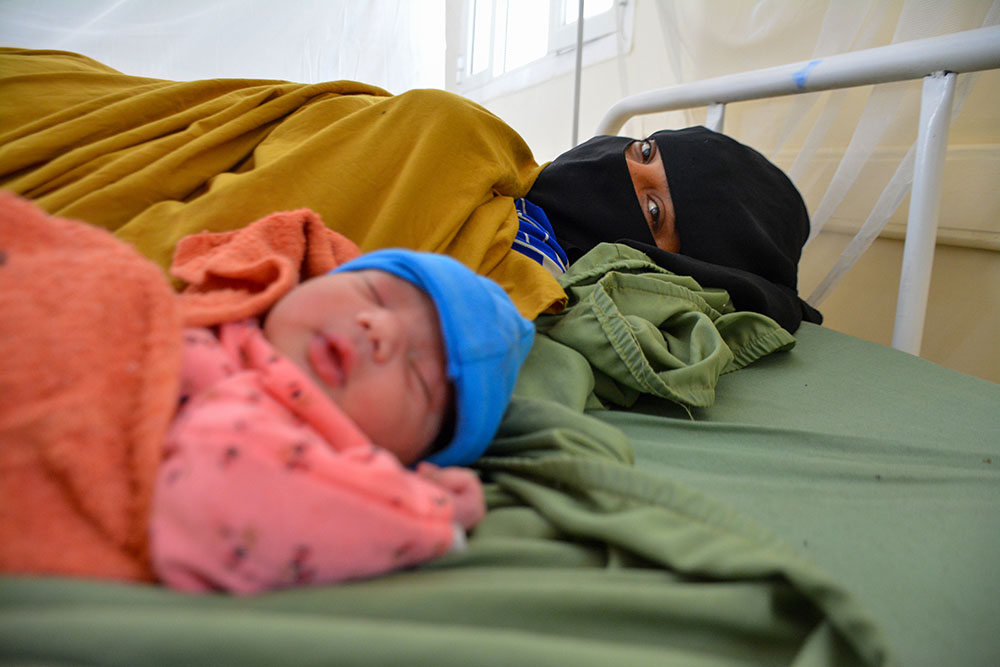
Risk factors include a maternal age of less than 17 or more than 35 years old, short intervals between pregnancies, maternal malnutrition, multiple pregnancies, abnormalities of the foetus and maternal health problems like malaria, pre-eclampsia, eclampsia, infections, among others. In Al-Qanawis, many mothers come to the hospital with these risk factors. However, ensuring basic neonatal care can significantly reduce mortality and improve outcomes.
A rooftop wish
Sitting on the rooftop that night, I felt satisfied to be part of a team contributing to saving lives, but I also worried for those who can’t reach our hospital. There are mothers screaming in pain and newborns taking their last breaths, simply because they were not able to access simple and basic medical care.
Witnessing this reality and realising how the war impacts so many vulnerable people makes me wish there were more global awareness and consciousness about what is happening here. I wish our resources and our great human capabilities were used to save lives, instead of taking them.
